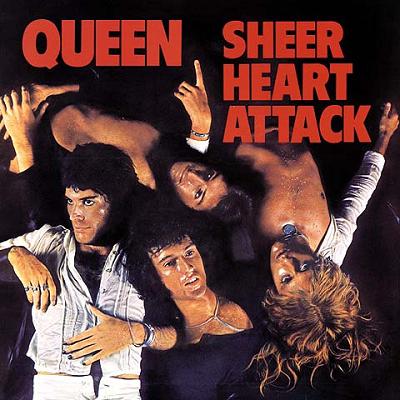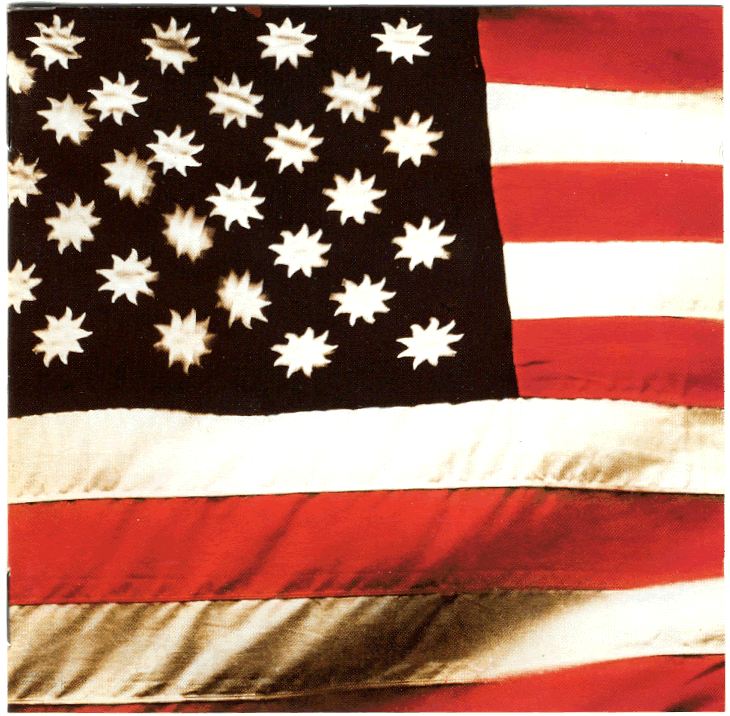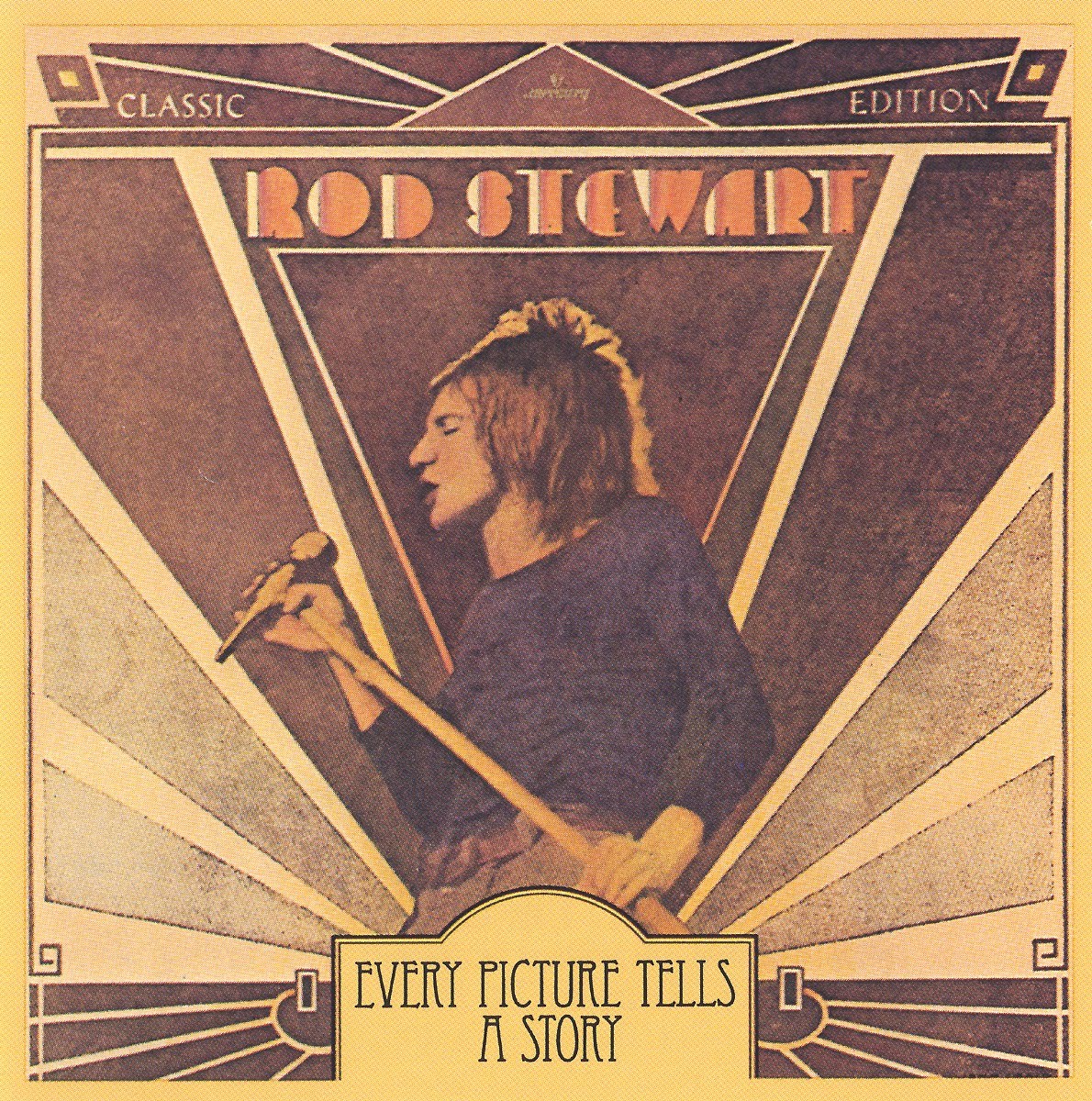60. The Wild, The Innocent, and the E Street Shuffle (Bruce Springsteen)
I’ve gone on record time and time again about Bruce Springsteen’s second album, and why it’s the greatest rock and roll album ever recorded; despite my persuasive rhetoric, I’ve hardly convinced many. Hell, I still can’t convince the populace at large that it’s the greatest Springsteen album ever recorded, so I’ll concede that it may well be subjective, even though you’re wrong for disagreeing. So let’s put it this way: you know how countless films and summery pop songs fetishize this idea of a fleeting summertime romance that burns out hard and fast, that lingers with you for the rest of your days, a passionate and exuberant fling that ruins you for all other lovers to come? The Wild, the Innocent, and the E Street Shuffle is an album-length exploration of (and ode to, and demonstration of) that elusive, cinematic feeling. It’s disheveled, irresponsible, hungover; it’s also rambling, soulful, and a little pretentious. But if it’s not the soundtrack to your every summer, it’s official: you don’t know what summer is and you’ve wasted your youth. (Drew)
59. Just As I Am (Bill Withers)
It’s rare that a debut album just about creates it’s own genre. Bill Withers’ blasted on the scene in 1971 with Just As I Am, an album part folk, part soul, part funk and wholly original. A combination of a funky rhythm section, perhaps an influence of having members of Booker T. and The MG’s playing and producing, along with stunningly beautiful string arrangements and, of course, that great voice and writing from Bill. Just listening to the opening tune “Harlem” and you get a glimpse of that urban experience that permeates many of those early 70’s albums. Starting off with a simple acoustic guitar line, the tune crescendos fabulously. And the next song, “Ain’t No Sunshine”, the most well known, is a low key lover’s lament that in two minutes defines what it’s like to miss someone. “Grandma’s Hands” paints such a descriptive picture, I can clearly see the lady every time I hear the song. Two songs that really rip you apart are, “Hope She’ll Be Happier,” about lost love, and “Better Off Dead,” a just crippling tune about alcoholism and suicide. Incredible record in just about every way! (Heavy Soul Brutha)
58. One Nation Under a Groove (Funkadelic)
 “Who says a funk band can’t play rock?”
“Who says a funk band can’t play rock?”
If George Clinton and company were beefing about being narrow-casted in 1978, imagine how angry they’d be if they had to compete with today’s amazingly restrictive genre listing. Always more socially and politically aware than in their Parliament incarnation, Funkadelic combines hooks and satire with an amazing flair on One Nation Under a Groove. The title track alone has provided the theme for house parties across the globe, not to mention sampling material for an entire generation of rappers. No doubt this song has come on in President Obama’s mental jukebox a time or two since 2008.
In its original incarnation, One Nation was only six songs (with a bonus three song EP included in the sleeve.) From the almost-conventional slow jam “Into You” to the just-plain-weird “P.E. Squad (Doo Doo Chasers)”, each track is a winner. Any song that can manage to work an obscene amount of scatological references into a political theme (no matter how vague) will always be thought fondly of by me.
One Nation ultimately wound up being the last completely cohesive statement by a Parliafunkadelicment Thang enterprise, as disco and then synthesizers soon took over dance music, but what a way to go out, huh? (Big Money)
57. Sheer Heart Attack (Queen)
 As soon as I see the cover, I immediately think,
As soon as I see the cover, I immediately think,
“She keeps Moet et Chandon
In her pretty cabinet
‘Let them eat cake’ she says
Just like Marie Antoinette…”
After Queen had released the ambitious Queen I, and the epic Queen II, they pulled out a completely different record in Sheer Heart Attack. Released in November, 1974 it was the first of a string of extremely diverse records. Where Queen I & II had a seamless “sound” to them, Sheer Heart Attack, by comparison, was all over the place. From “Now I’m Here” to “Lily of the Valley” – every song is seemingly written completely independent of the others with no consideration of the whole – yet as a whole, the songs fit together perfectly.
Starting off the record is Brian May’s “Brighton Rock,” a song that became a live staple of theirs for most of their career. However, all of Queen’s members contributed amazing compositions to this record – Freddie’s “Killer Queen” ended up being their first big hit, Roger’s “Tenement Funster” and John’s “Misfire” are also highlights of this record.
And how could we forget “Bring Back That Leroy Brown?” Yet two minutes later, we have Brian’s haunting ballad, “She Makes Me (Stormtrooper in Stilettoes).” But the big payoff is the ultimate sing-along, “In the Lap of the Gods…Revisited” which closes out a perfect LP. (May)
56. Armed Forces (Elvis Costello)
A painfully catchy pop record, Elvis C.’s rougher post-punk edges sanded down into sweet keyboard rock, immaculately composed melodies cresting the Attractions’ propulsive, tightly coiled rhythms; Armed Forces is never quite as revered as Costello’s first two records, particularly the angular, barnstorming This Year’s Model, but it may be the strongest pop record in his repertoire (well, if Get Happy!! didn’t exist, perhaps). The Spector-ish wall of sound that propels “Oliver’s Army” is what most people remember — those cascading pianos! — but each track here is a scorcher. The guitar’s buried real low in the mix, so be prepared for a LOT of keyboards; but, I mean, with melodies as perfect as “Accidents Will Happen” and “Big Boys”, new-wave inflected rock as driving as “Goon Squad” and “Busy Bodies”, lyrics as inspired as… well, as the entire album, as it contains some of Elvis’s most consistently biting lyrical content (although I am quite fond of the central lyric “Two Little Hitlers” hinges on)… it’s terrific from top to bottom, bitingly satirical, eminently singable, even kind of dance-able. Also, Elvis’s cover of “(What’s So Funny ‘Bout) Peace, Love and Understanding” is every bit as essential as everyone says it is. Those drums! (Drew)
55. Damn the Torpedoes (Tom Petty & The Heartbreakers)
There are some albums in rock and pop history that are packed with hit singles, fan favorites, and no filler. The Heartbreakers’ third outing is one such album. Of the nine cuts on Damn the Torpedoes, four are among Petty’s biggest hits (“Don’t Do Me Like That,” “Even the Losers,” “Here Comes My Girl,” and the showstopping “Refugee”); two are well-loved fan favorites (“Louisiana Rain,” “Shadow of a Doubt (Complex Kid)”); and the remaining three fit right in with the rest. In the aggregate, these songs gave the Heartbreakers their first top 10 album, and rocketed the band to the superstardom that they continue to enjoy three decades later. An argument can be made that Petty is stronger when taken as a singles artist. While that claim may have some validity, Damn the Torpedoes is as strong a counterargument as one can make. (Dr. Gonzo)
54. There’s a Riot Goin’ On (Sly & The Family Stone)
 Over the course of three albums, Sly and the Family Stone established themselves as arbiters of joyous, upbeat pop music with broad appeal. Preceded by a greatest hits album the previous year, There’s a Riot Goin’ On was a marked turn for Sly and the band. The sound on Riot was overwhelmingly downtempo and brooding in direct contrast to the buoyant soul-pop of earlier compositions such as “Dance to the Music” and “Life.” This stylistic shift coincided with Sly’s entree to the hard drug use that would plague him for decades, and ultimately, destroy his career. The darkness is nowhere more apparent than in Riot’s closing track, “Thank You for Talkin’ to Me Africa.” Reappropriating the lyrics of “Thank You Falletinme Be Mice Elf Agin” wholesale, “Thank You for Talkin’ to Me Africa” contextualizes those lyrics in a laboriously slow funk groove, constructing an air of cynicism, even violence. Particularly read against the song title’s allusion to Africa, lines like “Lookin’ at the devil grinnin’ at his gun / Fingers start shakin’, I begin to run” take on a much more sinister tone, alluding to racial violence or perhaps even slavery itself; likely not themes on the minds of listeners when the song topped the charts in its previous iteration.
Over the course of three albums, Sly and the Family Stone established themselves as arbiters of joyous, upbeat pop music with broad appeal. Preceded by a greatest hits album the previous year, There’s a Riot Goin’ On was a marked turn for Sly and the band. The sound on Riot was overwhelmingly downtempo and brooding in direct contrast to the buoyant soul-pop of earlier compositions such as “Dance to the Music” and “Life.” This stylistic shift coincided with Sly’s entree to the hard drug use that would plague him for decades, and ultimately, destroy his career. The darkness is nowhere more apparent than in Riot’s closing track, “Thank You for Talkin’ to Me Africa.” Reappropriating the lyrics of “Thank You Falletinme Be Mice Elf Agin” wholesale, “Thank You for Talkin’ to Me Africa” contextualizes those lyrics in a laboriously slow funk groove, constructing an air of cynicism, even violence. Particularly read against the song title’s allusion to Africa, lines like “Lookin’ at the devil grinnin’ at his gun / Fingers start shakin’, I begin to run” take on a much more sinister tone, alluding to racial violence or perhaps even slavery itself; likely not themes on the minds of listeners when the song topped the charts in its previous iteration.
Riot exhibits other new directions for Sly as well: the incorporation of electronic drums, a more relaxed vocal delivery, and an overall more subdued aesthetic. Whether a result of the drugs or a reflection of the social climate, Riot stands out as a landmark album in a discography filled with some of the best rock/pop/soul/funk music of the 1960s-1970s. (Dr. Gonzo)
53. Excitable Boy (Warren Zevon)
To most music fans, Warren Zevon is the dude that wrote “Werewolves of London” (more recently sampled in Kid Rock’s “All Summer Long”). Overplayed as it is, “Werewolves” is a pretty great track. Yet Zevon is a far more interesting songwriter than that hit may indicate. He was in essence a storyteller – some lyrics relatable and based on his own experiences, some fantastically fictionalized and satircal. Excitable Boy balances both of these approaches with tracks like “Werewolves,” “Lawyers, Guns, and Money,” “Roland the Headless Thompson Gunner,” and the title track balanced by wonderful ballad “Accidentally Like a Martyr,” “Tenderness on the Block,” and the straightforward rock opener “When Johnny Strikes Up the Band.” The album also boasts a stunning array of guest appearances, including co-producer Jackson Browne, Mick Fleetwood, John McVie, Linda Ronstadt, and Jeff Porcaro, to name a few. Although Zevon was frequently a critic’s favorite, he never truly got his due. A fantastic songwriter with a stunning sense of humor and wordsmithery, Zevon was one of the best – and Excitable Boy remains his definitive album. (Dr. Gonzo)
52. Every Picture Tells a Story (Rod Stewart)
 In a world of Deluxe Editions and Target Exclusives, an album like Every Picture Tells a Story today would most likely be seen as a poor value, with only 20 minutes or so on each side of the initial release. And yet, there’s a whole lot of soul and inspiration in those ten short tracks. From the opening title track that captures Rod’s maturation after traveling the world to the folk-tinged closer “Reason to Believe,” this album is a diverse record that draws on multiple influences and covers of well-known artists. If taking on “Amazing Grace” isn’t enough of a challenge, there are Rod’s covers of Elvis Presley’s “That’s All Right,” “Tomorrow is a Long Time” by Bob Dylan, and the Temptations’ “(I Know) I’m Losing You.”
In a world of Deluxe Editions and Target Exclusives, an album like Every Picture Tells a Story today would most likely be seen as a poor value, with only 20 minutes or so on each side of the initial release. And yet, there’s a whole lot of soul and inspiration in those ten short tracks. From the opening title track that captures Rod’s maturation after traveling the world to the folk-tinged closer “Reason to Believe,” this album is a diverse record that draws on multiple influences and covers of well-known artists. If taking on “Amazing Grace” isn’t enough of a challenge, there are Rod’s covers of Elvis Presley’s “That’s All Right,” “Tomorrow is a Long Time” by Bob Dylan, and the Temptations’ “(I Know) I’m Losing You.”
Part of the appeal of Every Picture Tells a Story lays in the ability of Stewart to play the role of an adventurous yet vulnerable protagonist through a series of more reflective themes that one might not expect from a man dubbed “Rod the Mod” only a few years early. Yet the power of Stewart’s distinct vocals and the way he took on varied genres with equal success helped distinguish this album from other records released in the early 70s. There was nothing quite like “Maggie May” on the radio at the time, and that single alone propelled the album toward the top of the charts after starting out as the B-side of “Reason to Believe.” While there were not any other big hits on the album (“(I Know) I’m Losing You” got to number 24), Every Picture Tells a Story stands as a cohesive tale of a man who not only lives a full life and travels the world, but also learns about himself and his place in that big, beautiful world. (John H.)
51. Hotel California (The Eagles)
Let’s start out by forgetting that Hotel California is one of the best-selling albums of all time, as sales do not necessarily equal quality. Then let’s toss out the window the fact that the title track has one of the most recognizable intros in Rock history, inspiring dudes with guitars all over the world to learn those opening chords many years after its release. And what the heck…let’s invalidate the tight harmonies and magically blended dueling guitars. That can’t have anything to do with the enduring love for The Eagles’ fifth album release.
Or not.
Hotel California is one of the most beloved albums of the 70s for all of the reasons listed above, and then some. There is a shared legacy in those songs that crossed genre lines, age and gender demographics, and social classes. From the lushness of the harmonies on both ballads and rockers to the precise production that placed every guitar strum and drum beat precisely where it needs to be in the room, there was something for almost everyone in these songs that attempted to draw attention to growing excesses in our culture as the 70s were in full swing. This is the portrait of a moment in time as well as of a band at the peak of their creative and commercial success. Whether it was the addition of Joe Walsh to the lineup, the production and mixing prowess of Bill Szymczyk, or the consistency of a common theme that bound the album together thematically, something aligned just right to make Hotel California the crowning achievement of The Eagles in an already stellar career. (John H.)


5 comments
GG says:
Mar 18, 2013
The Wild, The Innocent, and the E Street Shuffle is my favorite Bruce album from my youth. Dad had it on vinyl. Can’t say I’ve listened to every single one Bruce album, but I love it.
Steve says:
Mar 18, 2013
Nice to see Queen make this list. Great stuff here, and this, like the other installments, is spurring some re-discovery on my part!
Big Money says:
Mar 19, 2013
I need to listen to some more Warren Zevon…
Gonzo says:
Mar 19, 2013
Zevon is good stuff, though I don’t have a great depth of familiarity with his catalog. Definitely the self-titled, Excitable Boy, and The Wind (the latter being his swan song made post-cancer diagnosis).
Big Money says:
Mar 19, 2013
Right. I have a Best Of on hand.